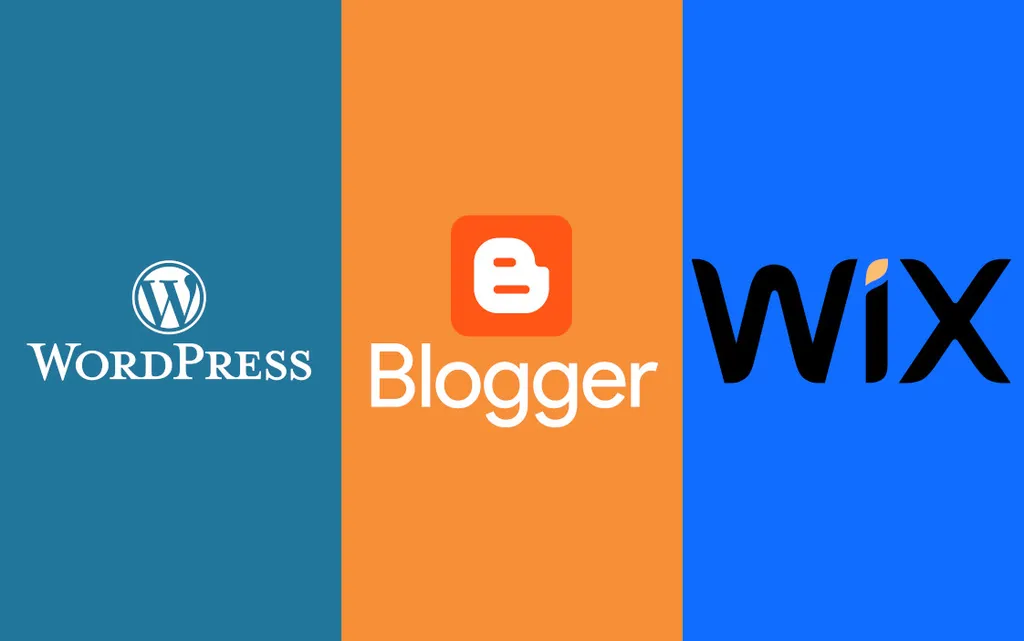In today’s digital world, blogging has become a powerful medium for self-expression and knowledge sharing. But what if you want to share your thoughts without revealing your identity? An anonymous blog might be the perfect solution. If you’ve ever wondered, how do I start an anonymous blog, this guide will walk you through every step.
Also read: What to Write on Your Facebook Blog
What is an Anonymous Blog?

An anonymous blog is a platform where you share content without attaching your real name or identifiable information.
These blogs allow individuals to write freely about sensitive topics, personal stories, or niche subjects without worrying about their identity being exposed.
Whether you want to write anonymously to discuss controversial issues or simply maintain your privacy, anonymous blogs can be a powerful tool for self-expression.
Why You Might Want to Start Blogging Anonymously with WordPress
Blogging anonymously is an excellent way to share your thoughts without revealing your identity.
WordPress is one of the most popular platforms for starting an anonymous blog, offering features catering to privacy, control, and versatility.
Here are some detailed reasons why anonymous blogs thrive on WordPress:
Enhanced Privacy Features
One of the primary concerns for anonymous bloggers is maintaining privacy. WordPress provides tools to safeguard your identity.
You can create your blog using a pseudonym, and there’s no requirement to share personal information publicly.
By using secure hosting options and privacy-focused plugins, you can ensure your blog remains truly anonymous.
Why this matters: Blogging about sensitive topics, personal experiences, or controversial issues often requires a layer of protection.
WordPress allows you to control who sees your content and what information is accessible.
Customizable Design Options
WordPress offers a vast library of themes and plugins to customize your blog. You can design an aesthetically pleasing blog without giving away any personal details.
From minimalist themes to interactive layouts, the platform empowers you to create a professional-looking blog while remaining incognito.
Example: Suppose you’re writing about mental health under a pseudonym. A calming theme and straightforward navigation can attract readers while keeping your identity private.
Flexibility in Content Management
WordPress supports various content types, including articles, videos, and podcasts. This flexibility allows anonymous bloggers to experiment with different formats without revealing their identities.
You can also schedule posts and moderate comments anonymously to maintain control over your blog’s interaction.
Tip: Use private or unlisted URLs for sensitive posts, sharing them only with select audiences to protect your anonymity further.
Compare: Best Backlit Ergonomic Keyboard
SEO Capabilities Without Identity Disclosure
While staying anonymous, you can still optimize your blog for search engines to reach a wider audience.
WordPress offers built-in SEO tools and plugins like Yoast SEO, enabling you to rank your content without tying it to your real identity.
Benefit: This ensures that your blog reaches the right audience, whether writing about niche topics or sharing personal stories.
Affordable and Accessible for Beginners
WordPress has free and budget-friendly options, making it ideal for those who want to write anonymously without spending a fortune.
Free hosting options and easy setup processes make it accessible for beginners who might be exploring the world of anonymous blogs for the first time.
Pro Tip: Combine WordPress with a privacy-focused hosting provider for added security.
Community Support and Resources
WordPress has a massive community of users and developers, ensuring you’ll find solutions to technical challenges without compromising your anonymity.
Tutorials, forums, and guides help you set up and manage your blog with ease.
Why this matters: Even as an anonymous blogger, you’ll never feel isolated when troubleshooting or looking for tips.
How to Blog Anonymously (A 10-Step Guide)

Starting an anonymous blog is simpler than it seems, but it requires thoughtful planning to ensure your identity remains secure.
This step-by-step guide will walk you through creating and managing a blog where you can write anonymously with confidence.
1. Choose a Blogging Platform That Supports Anonymity
Select a platform like WordPress, Tumblr, or Medium that allows you to create anonymous blogs without revealing personal details.
WordPress is highly recommended because of its customization options, privacy features, and flexibility.
Why it matters: Not all platforms prioritize user anonymity, so choosing the right one is the foundation of maintaining your privacy.
2. Use a Pseudonym
Pick a pseudonym to represent you online. Avoid using any name or username that could be linked back to your real identity.
Tip: Choose a name relevant to your blog’s niche for consistency and branding. For example, if you’re blogging about travel, pick something like “WanderingSoul.”
3. Secure an Anonymous Email Address
Set up a new email account specifically for your blog, using a service like ProtonMail or Tutanota, which are designed for privacy.
Avoid using your personal or work email to prevent accidental exposure.
Pro Tip: Use this email exclusively for blog-related activities to minimize digital footprints.
4. Use a Privacy-Focused Hosting Provider
If you’re using a self-hosted platform like WordPress.org, choose a hosting provider that values privacy and allows anonymous payment methods like cryptocurrency. This adds an extra layer of protection.
Why this matters: Standard hosting providers may require identifiable information, so choosing privacy-focused hosting helps protect your anonymity.
5. Hide Your Domain Information
If you purchase a custom domain, use a service like WHOIS privacy protection to keep your personal details hidden.
Without this, your name, address, and contact details could become publicly accessible.
Example: Services like Namecheap and Google Domains offer affordable domain privacy options.
6. Set Up a VPN for Secure Internet Access
A Virtual Private Network (VPN) masks your IP address, ensuring your online activities remain private.
Use a trusted VPN when setting up and managing your blog.
Pro Tip: Select a VPN with a no-logs policy for added security.
7. Avoid Sharing Personal Information
Be mindful of what you post on your blog.
Avoid sharing identifiable details, such as your location, employer, or photos of yourself.
Even small hints can lead to unintentional exposure.
Why this matters: Once personal information is shared online, it’s difficult to retract.
8. Use Privacy Plugins and Tools
Enhance the security of your blog by installing privacy-focused plugins.
For example, WordPress offers plugins that block tracking scripts and improve security.
Example: Plugins like Wordfence Security and Shield Security can protect your blog from unauthorized access.
9. Test Your Blog’s Anonymity
Before publishing your first post, test your blog to ensure no personal information is visible. Check the blog’s metadata, email, and domain settings for potential leaks.
Tip: Use a different device or ask a friend to view your blog objectively to identify privacy gaps.
10. Publish and Promote Cautiously
When sharing your blog posts, use privacy-conscious platforms like Reddit or niche forums. Avoid linking your anonymous blog to personal social media accounts.
Pro Tip: Use hashtags and SEO strategies to promote your content without revealing your identity.
Platforms That Allow You to Start an Anonymous Blog for Free

If you’re looking to start an anonymous blog without spending money, several platforms provide the tools you need to write privately and securely.
Here are some popular options:
WordPress.com
WordPress.com offers a free plan that’s perfect for starting an anonymous blog. It allows you to customize your blog’s design and publish content under a pseudonym.
While some advanced features require payment, the free version provides everything you need to maintain privacy.
Blogger
Owned by Google, Blogger is another free platform ideal for creating anonymous blogs. You can sign up using an anonymous Gmail account and start posting immediately.
Google is easy to use and integrates well with other Google services.
Medium
Medium is a free platform that caters to writers who want to focus on content rather than design.
You can easily set up an account with a pseudonym and write anonymously to reach a broad audience.
However, keep in mind that Medium limits customization options.
Tumblr
Tumblr is a great choice for anonymous microblogging. It allows you to post text, images, and videos under a username of your choice.
With its strong community features, Tumblr is perfect for niche blogging and social interaction.
Ghost (Free Version)
Ghost is a minimalist platform designed for writers.
While its premium plans offer more features, the free self-hosted version allows you to maintain an anonymous blog with full control over privacy settings.
Each of these platforms provides a unique blogging experience, making it easier for you to share your thoughts while maintaining anonymity.
Select the one that aligns best with your goals and technical preferences.
Pros of Blogging Anonymously

Blogging anonymously offers a unique opportunity to share your voice without revealing your identity.
Whether you’re tackling sensitive topics, exploring creative ideas, or maintaining your privacy, anonymous blogs come with several advantages:
Freedom of Expression
When you write anonymously, you can express your thoughts and opinions without fear of judgment, criticism, or backlash.
This is especially helpful if you want to discuss controversial issues, personal experiences, or taboo topics that you might hesitate to share under your real name.
Privacy Protection
An anonymous blog shields your identity from the public eye. You can discuss your personal life, workplace issues, or other sensitive matters without worrying about it being traced back to you.
This layer of privacy also protects you from online harassment or doxxing.
Focus on Content Over Identity
Blogging anonymously allows your content to shine without being overshadowed by who you are.
Readers focus entirely on your message, ideas, and creativity, rather than your background, appearance, or personal life.
Ability to Explore Multiple Niches
With anonymity, you’re free to experiment with various topics and niches without fear of diluting a personal brand.
You can create multiple anonymous blogs on entirely different subjects, catering to diverse audiences.
Reduced Pressure and Anxiety
Publishing content under your real name can feel intimidating, especially if you’re worried about how others might react.
Blogging anonymously removes that pressure, allowing you to post more freely and authentically.
Safeguard Your Professional Reputation
If your blog covers controversial or sensitive topics, anonymity ensures that your professional life remains separate.
This can be crucial for individuals in industries where expressing certain views might have repercussions.
Easier to Address Personal or Sensitive Topics
An anonymous platform allows you to share personal stories or struggles, such as mental health challenges, financial hardships, or relationship issues, without the fear of being judged or stigmatized.
Cons of Blogging Anonymously

While blogging anonymously has its benefits, it also comes with some drawbacks that can affect your blogging journey.
Here are the primary challenges of managing anonymous blogs:
Limited Personal Connection
When you write anonymously, it can be harder to build a personal connection with your readers.
Many people relate to bloggers because of their authenticity and real-life stories, but anonymity can create a barrier that makes your audience feel distant.
Difficulty in Building Trust
Establishing credibility can be challenging for anonymous blogs.
Without revealing your identity, readers may question your authority or expertise on certain topics, especially in niches that require professional knowledge.
Limited Branding Opportunities
Anonymity restricts your ability to create a personal brand.
Unlike bloggers who use their real names and identities, you miss out on opportunities like public speaking, interviews, or collaborations that rely on name recognition.
Monetization Challenges
While it’s possible to monetize an anonymous blog, the process can be more complicated.
Many affiliate programs, sponsorship deals, or advertising networks require identity verification.
If you wish to monetize, you may need to disclose personal details to payment platforms.
Higher Risk of Anonymity Breach
Maintaining anonymity requires careful management of your online presence.
A simple oversight, such as sharing personal details in a post or using an email linked to your real identity, could expose your true identity.
Fewer Networking Opportunities
Bloggers often rely on networking and collaborations to grow their reach.
When you blog anonymously, it can be harder to connect with others in your niche since many networking opportunities require mutual trust and openness.
Limited Recognition for Your Work
The anonymity that protects your identity also prevents you from receiving personal recognition for your work.
If your blog becomes successful, you won’t be able to fully claim credit for your accomplishments unless you reveal your identity.
Challenges with Legal and Copyright Issues
If someone copies your content or you encounter legal disputes, handling these issues as an anonymous blogger can be complicated.
Your anonymity might hinder your ability to prove ownership or defend your rights.
While the challenges of writing anonymously shouldn’t discourage you, they do require careful consideration and planning.
Related: Is Freelance Writing Hard with ChatGPT?
How to Promote an Anonymous Blog

Promoting an anonymous blog can be a bit tricky because you need to ensure your identity remains concealed while still reaching a broad audience.
Fortunately, there are various strategies you can use to increase visibility without compromising your anonymity.
Here’s how you can effectively promote your anonymous blog while protecting your identity:
Leverage Social Media Platforms
Using social media is one of the most effective ways to promote your anonymous blog.
You can create separate accounts on platforms like Twitter, Instagram, or Pinterest specifically for your blog.
Be sure to keep your personal social media accounts separate to avoid revealing your identity.
Tip: Use pseudonyms or aliases on social media accounts, and avoid sharing personal information that might connect your profiles to your real life.
Utilize Privacy-Conscious Forums and Communities
Engage with online communities and forums related to your blog’s niche.
Platforms like Reddit, Quora, and niche-specific forums allow you to participate in discussions and share links to your anonymous blog without revealing your identity.
Tip: Participate actively in these communities to build credibility before linking to your blog. This helps avoid appearing as spam and allows you to build a loyal following.
Search Engine Optimization (SEO)
SEO is a key factor in driving organic traffic to your blog. Optimize your blog posts by using the right keywords, meta tags, and alt texts for images.
Since your anonymous blog doesn’t rely on your branding, focusing on high-quality, optimized content will help search engines recognize and rank your posts.
Tip: Use tools like Google Analytics and Yoast SEO to track and enhance your blog’s performance.
Guest Posting and Collaborations
Guest posting is an excellent way to get your anonymous blog in front of new audiences.
Look for blogs in your niche that accept guest posts, and pitch them relevant content that links back to your blog.
Keep your pseudonym consistent across all guest posts to maintain anonymity.
Why this works: Guest posts allow you to leverage established platforms while protecting your identity and driving traffic back to your blog.
Email Marketing
Create a separate email list for your anonymous blog.
You can offer visitors something valuable, such as a free e-book or guide, in exchange for subscribing to your newsletter.
Be sure to use a privacy-focused email service, such as ProtonMail, to maintain anonymity.
Tip: Make your email newsletters engaging and valuable to your audience to encourage sharing, which can help broaden your reach.
Participate in Collaborative Projects
Collaborating with other anonymous bloggers or creators in your niche can be an effective way to grow your audience.
Work on joint posts, challenges, or social media takeovers that introduce your blog to a wider, yet similarly interested, audience.
Why this works: Collaborations allow you to tap into the audiences of others while remaining anonymous, which helps build exposure without personal identification.
Utilize Content Aggregators
Content aggregators like Medium, Flipboard, and Pocket allow you to share your blog posts with larger audiences.
When you share content on these platforms, ensure that your pseudonym is used consistently to keep your anonymous blog intact.
Tip: Submit only your best content to these platforms, as the visibility they provide can be substantial.
Use Hashtags and SEO on Social Platforms
Hashtags on platforms like Instagram and Twitter can help increase your blog’s visibility.
Research trending hashtags within your niche and use them in your posts to connect with people searching for similar content.
Tip: Create a unique hashtag for your anonymous blog to make it easier for your readers to find related posts.
How to Monetize Your Anonymous Blog

Monetizing an anonymous blog can be a bit more complex than monetizing a personal blog, but it’s absolutely possible with the right approach.
If you want to generate income from your anonymous blog, here are several ways you can achieve that without compromising your anonymity:
Affiliate Marketing
Affiliate marketing is one of the most popular and effective ways to monetize an anonymous blog.
By joining affiliate programs, you can earn commissions by promoting products or services related to your blog’s content.
You don’t need to reveal your identity, and you can seamlessly integrate affiliate links into your blog posts.
Tip: Choose affiliate programs that align with your blog’s niche, and promote high-quality products that you genuinely recommend. Popular platforms like Amazon Associates, ShareASale, and CJ Affiliate offer various programs for different industries.
Display Ads
You can monetize your anonymous blog by displaying ads through ad networks like Google AdSense or Media.net.
These networks place ads on your blog, and you earn money when visitors click or view the ads. You don’t need to reveal your identity to sign up for these ad programs.
Tip: Focus on increasing your blog’s traffic to maximize earnings from ads. You can also optimize ad placements to ensure they’re effective without being intrusive.
Sponsored Posts
Sponsored posts are another way to generate income from your anonymous blog. Companies and brands may approach you to write posts promoting their products or services.
To keep your anonymity, you can sign contracts and handle payments through secure, anonymous methods such as PayPal or cryptocurrency.
Tip: Ensure that the products or services you promote align with your blog’s content and values. It’s important to maintain trust with your readers even when monetizing.
Selling Digital Products
If you have expertise in your niche, you can create and sell digital products, such as e-books, guides, printables, or online courses.
You can sell these products on your anonymous blog without revealing your identity.
Use a third-party payment processor like PayPal or Gumroad to handle transactions without disclosing personal information.
Tip: Build trust with your audience by offering valuable, well-researched, and high-quality digital products that solve a problem or provide value.
Offer Consulting or Coaching Services
If you have specialized knowledge or skills, you can offer consulting or coaching services.
Even as an anonymous blogger, you can set up an anonymous email account or use a pseudonym to interact with clients.
To maintain privacy, you can use platforms like Zoom or Skype to offer your services without revealing your personal identity.
Tip: Clearly define the terms of your services, and be transparent about your pseudonym with clients to ensure professionalism while protecting your privacy.
Membership Programs or Patreon
If your blog has a dedicated audience, you can set up a membership or subscription program through platforms like Patreon.
This allows readers to support your blog through regular donations in exchange for exclusive content or benefits.
You can remain anonymous by using a pseudonym and processing payments securely.
Tip: Offer value to your supporters, such as access to exclusive blog posts, videos, or behind-the-scenes content, to encourage subscriptions.
Sell Ad Space Directly to Companies
Instead of relying on ad networks, you can sell ad space directly to companies that align with your blog’s content.
This allows you to control the ads on your blog while also earning revenue. To maintain anonymity, use a separate business email and secure payment options to handle the transactions.
Tip: Reach out to brands within your niche that might be interested in advertising on your blog and offer competitive rates.
Crowdfunding
For certain types of anonymous blogs, crowdfunding can be a viable option. Websites like GoFundMe or Kickstarter allow you to raise funds for specific projects or causes.
You can set up a campaign without revealing your identity and still earn money to support your blog or related activities.
Tip: Create a compelling and clear story for your crowdfunding campaign, explaining the purpose and goals of your anonymous blog to attract supporters.
Sell Physical Products
While selling physical products can be more challenging for an anonymous blog, it’s still possible.
You can sell merchandise like branded T-shirts, mugs, or other products related to your blog’s content.
Using print-on-demand services ensures that you don’t have to handle inventory or reveal your personal information.
Tip: Create designs or products that resonate with your audience and align with the themes of your blog to increase sales potential.
When You Should Blog Under Your Real Name

While blogging anonymously offers many benefits, there are also times when using your real name may be the better choice.
Blogging under your real name can help establish your personal brand and give you a greater sense of credibility and trust with your audience.
Here are some situations when you should consider blogging under your real name:
Building a Personal Brand
If your goal is to build a strong, personal brand, blogging under your real name is often essential.
A real-name blog allows you to showcase your expertise, establish authority, and form a lasting connection with your audience.
It gives you a unique identity and makes it easier for your audience to trust and engage with your content.
Why this works: People are more likely to engage with a blog written by someone they can connect with personally. Using your real name helps humanize your blog and makes your content more relatable.
Opportunities for Networking
Blogging under your real name allows you to network more effectively.
Whether you’re collaborating with other bloggers, working with brands, or seeking job opportunities, a real-name blog provides you with a professional platform.
Potential collaborators and employers are more likely to find and engage with you when your name is tied to your content.
Why this works: In a professional context, personal branding is often key to making valuable connections. A blog under your real name provides visibility in your industry and helps open doors for networking opportunities.
Personalized and Authentic Content
If your blog focuses on personal experiences, stories, or opinion pieces, using your real name adds authenticity to your writing.
It’s easier to create a deeper connection with your readers when they know they are hearing from a real person.
When discussing personal experiences or sharing your thoughts, your readers will feel more confident in the genuineness of the content.
Why this works: Readers are more likely to trust and value content that is shared by someone who openly associates with their words. Real-name blogging can lend a sense of accountability to your posts.
Professional Opportunities and Monetization
If you plan to turn your blog into a career or monetize it, using your real name can help establish credibility with potential sponsors, advertisers, and customers.
Your name is a powerful asset in the world of professional blogging, where trust and recognition play a significant role in earning revenue.
Why this works: Brands, companies, and even readers often prefer working with bloggers who have established themselves under their real names, as this creates a sense of authenticity and reliability.
Long-Term Goals and Personal Growth
Blogging under your real name may align better with long-term personal or career goals.
If you plan on publishing books, becoming a public speaker, or getting involved in your field on a larger scale, having a real-name blog sets the stage for these pursuits.
It also encourages personal growth as you navigate the challenges of growing your blog under your own identity.
Why this works: Using your real name can create a lasting, identifiable presence that aligns with your future professional endeavors. It helps you build a legacy that’s tied to your authentic self.
Legal and Ethical Transparency
If you plan to write about topics that could impact your reputation, career, or public perception—such as politics, business, or social issues—blogging under your real name can hold you accountable for the things you say.
This transparency is especially important if you want to participate in debates or discussions that require a high level of personal integrity.
Why this works: Blogging under your real name signals to your readers that you are responsible for your words and that you stand behind your opinions, which is crucial in fields where ethics and responsibility are paramount.
Credibility in Specific Niche Industries
In some industries, especially those related to professional services, law, healthcare, or finance, blogging under your real name may be necessary to demonstrate your qualifications, knowledge, and credibility.
A real-name blog can position you as an authority in your field and give readers the confidence to seek your expertise.
Why this works: Using your real name as a professional identifier in your niche helps set you apart from anonymous bloggers. It establishes trust and confidence in your specialized knowledge and services.
Frequently Asked Questions (FAQs)
Q: Do anonymous bloggers get paid?
A: Yes, anonymous bloggers can get paid. Many monetization methods, such as affiliate marketing, display ads, sponsored posts, and selling digital products, allow bloggers to earn income without revealing their identity. By using secure payment methods like PayPal or cryptocurrency, anonymous bloggers can protect their privacy while still earning revenue. However, it’s important to follow best practices for maintaining anonymity while engaging in monetization strategies.
Q: Can you start a blog anonymously?
A: Yes, you can start an anonymous blog. There are various platforms and tools available that allow you to create and manage a blog without revealing your identity. By using pseudonyms, secure payment methods, and anonymous hosting services, you can ensure your privacy while publishing content. However, it’s essential to take steps to protect your anonymity, such as using private browsing, a VPN, and anonymous domain registration.
Q: Can you start a blog without showing your face?
A: Yes, you can start a blog without showing your face. Many bloggers successfully maintain anonymity by not including personal photos or revealing their identity in their posts. If your content focuses on written material, you don’t need to appear on camera. You can use avatars, illustrations, or generic stock images for visual content instead. Your blog’s success depends on the quality of your content, not your appearance.
Q: Can someone tell if I look at their blog?
A: Generally, someone cannot tell if you look at their blog. Most blogging platforms and websites do not notify users about who visits their blogs. However, website owners can track the number of visitors, the countries or regions they’re from, and general data through analytics tools like Google Analytics. If you comment or interact with the blog in any way, the blog owner may be able to identify you based on your username or email address.
Conclusion
Starting and maintaining an anonymous blog can be a fulfilling and rewarding endeavor, allowing you to share your thoughts, ideas, and expertise without compromising your privacy.
Whether you’re looking to express yourself freely, discuss sensitive topics, or earn money from your blog, blogging anonymously offers a layer of security and control over your personal information.
However, it’s essential to carefully weigh the pros and cons of blogging anonymously, understanding the potential challenges and limitations.
By choosing the right platform, monetizing wisely, and promoting your blog strategically, you can make your anonymous blog successful while protecting your identity.
Blogging anonymously may not be for everyone, but for those who value privacy, creativity, and independence, it can be a powerful tool to share valuable content with the world—on your terms.











